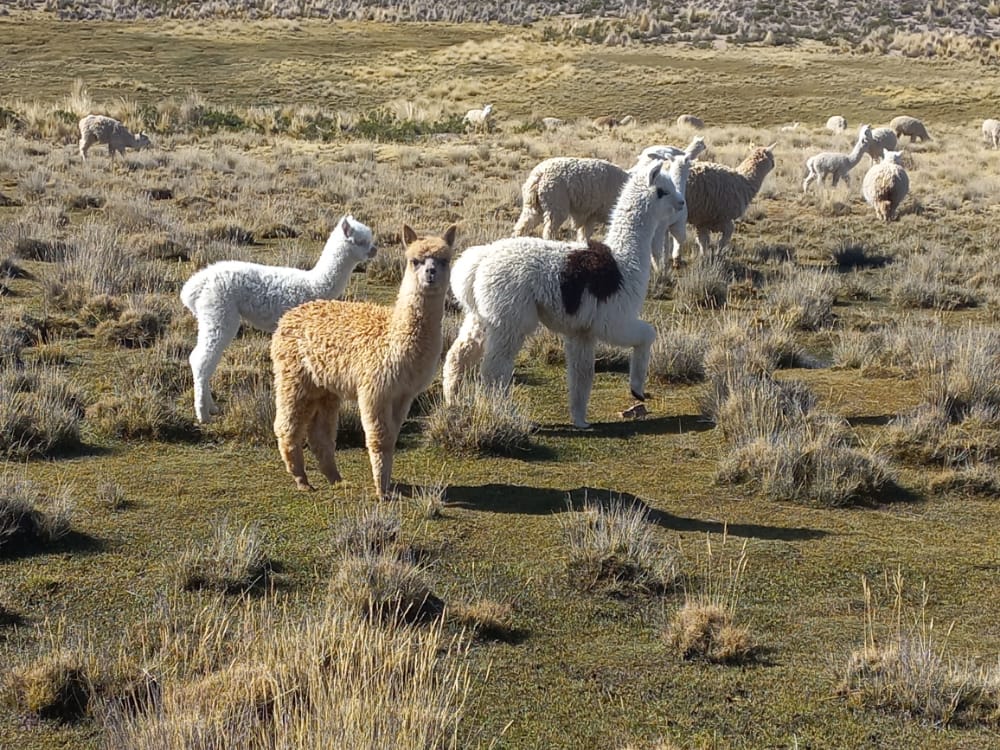NEXUS PHASE III PROJECT: ENHANCING ALPACA’S SURVIVAL AND FIBER QUALITY IN AREQUIPA’S HIGHLANDS
January 5, 2024
Peru is the world leader in alpaca production and thousands of rural Peruvian families, including the Arequipa region, raise flocks of alpacas at elevations of more than 4,000 meters intended for the fiber market, which is their primary source of income. The harsh environmental conditions under which this activity is developed, together with changing climatic events, have increased mortality and reduced productivity of these animals in Arequipa. Moreover, various other issues such as low fiber quality (and consequently, low price), low birth rates, reduced genetic diversity, and reduced growth and survival of animals raised in high altitudes, jeopardize the alpaca industry sustainability.
One of the four Nexus Phase 3 projects, “Integrating genomics, phenotyping, and nutrition strategies to enhance alpaca fiber quality and survival in Arequipa’s highlands”, recognizes the challenges and needs (e.g., lack of knowledge in alpaca nutrition and genetic improvement, low educational level of alpaca farmers) of this industry in Arequipa and aims to address these key constraints to aid in improving the industry profitability and its long-term sustainability. The main objectives of this project are to:
- Develop genomic-based breeding strategies for increasing the genetic diversity and improving the genetic merit of alpaca herds for fiber quality and survival in the region of Arequipa,
- Evaluate nutritional management practices and identify high-quality forage adapted to the Arequipa highlands for meeting the nutritional needs of alpacas during different phases of their production cycle, and
- Develop outreach activities and training material for alpaca farmers, UNSA students, and extension specialists.
Contact Details
- Rosa Cossio
- rcossio@purdue.edu
- 7654940721


